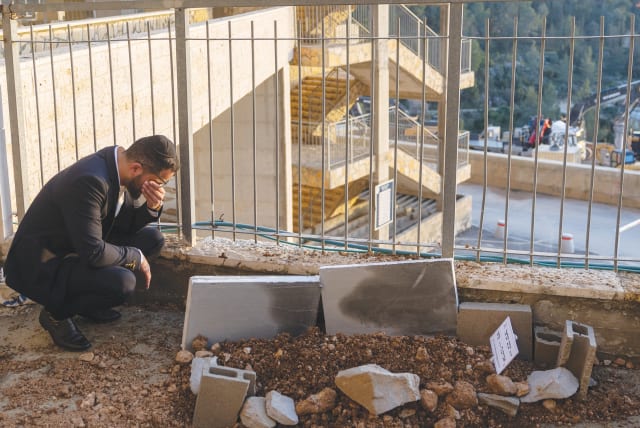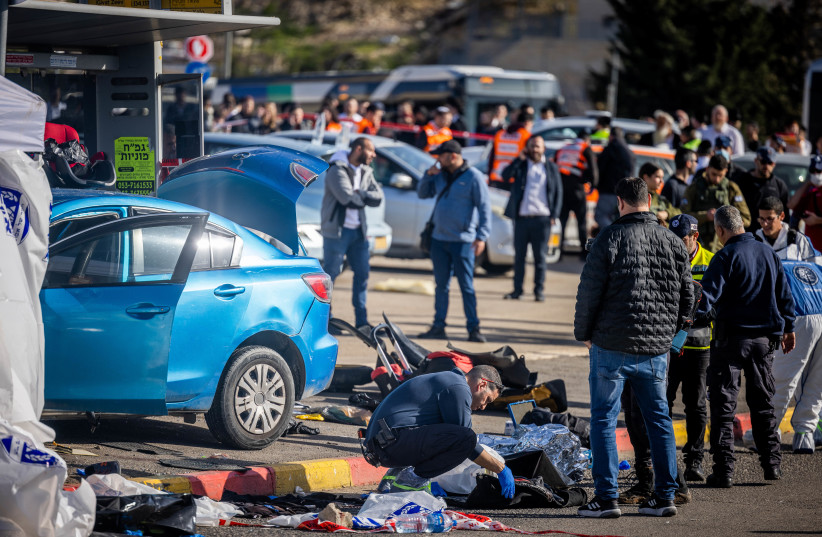Progressives, liberals alike perpetuate evil with moral ambivalence - opinion

See no evil: In what universe is there a moral equivalency between ramming a vehicle into people standing at a bus stop and a young person losing his life in a crossfire with terrorists?
Progressives – certainly a misnomer, be they woke, communists, anarchists or radical social justice activists – consider Israel illegal and immoral and therefore a legitimate target for their verbal invective and protests. They don’t hesitate to condemn Israel at every opportunity.
Progressives applaud Palestinian resistance, an Orwellian expression of violence and terror. Their allegiance is clear. However, their numbers remain relatively small.
A much larger group is those who fancy themselves as liberals. Liberals pride themselves on not taking an extreme position on any issue. They consider themselves to be moderate, rational and level-headed thinkers, who honor above all the values of fairness and equality. And therein lies the problem that renders liberals more of a threat than progressives. The familiar liberal commitment to even-handedness denies acknowledging that one side may be right and one side may be wrong.
Such is the case with the oft-expressed liberal views on the Israeli-Palestinian conflict. Even those who evince more sympathy for the Palestinians than for Israel might still concede that there is a right and a wrong, and good and bad on both sides. And that once each side recognizes this in the other, the path to peace is open.
This insistence on equivalency has become the mantra of high-level negotiators, media commentators and many informal observers. Framing the conflict thus may be expedient but it is morally obtuse.
Efrat
Recently, a group of young adult Christian Americans spent a weekend in Efrat. They enjoyed local touring and heard lectures about community life, Judaism and security. Most importantly, they had the opportunity to live with local families over four days, including Shabbat. This homestay experience disabused them of any negative stereotypes of settlers they might have harbored upon their arrival.
The likelihood of these visitors having absorbed such stereotypes stems from their recent studies and residency among Arab Muslims, including Palestinians. Nevertheless, overnight they warmed to the friendliness, openness and warmth of their Efrat hosts. The families hosting them clearly did not match the contemptible image of settlers to which they had been exposed. Moreover, they learned about the many areas of cooperation between Efrat’s Jewish residents and their Palestinian neighbors.
BUT THEY also learned of Efrat’s experiences over the years with Palestinian terrorists who succeeded in infiltrating the community or were caught attempting to do so. And it was within the context of this topic that one of the weekend hosts condemned the horrific car-ramming in Jerusalem by a Palestinian terrorist on a recent Friday afternoon, just before the onset of Shabbat. This heinous act took the lives of two children, brothers ages six and eight, and a recently married 20-year-old and injured four others just waiting at a bus stop.
The quick retort of the visitor to hearing the terrorist berated by an Israeli was to poignantly remind the host of the recent death of a 14-year-old Palestinian boy in the city of Jenin, who was caught in the exchange of fire between IDF troops and local terrorists. Even CNN took pains to offer its audience the context surrounding that event: “In a joint statement, the Israel Defense Forces, Border Police and Israel Security Agency said that during the raid, ‘armed individuals fired at the forces who responded back with live fire... Furthermore, suspects hurled explosive devices and rocks at the forces.’”
Confronted with these facts, the guest’s response was almost Pavlovian: “In the end, there is death on both sides.” In other words, the deaths at the bus stop and the death in Jenin were of equal significance. Such is the power of cognitive dissonance. It prevents giving consideration to any interpretation that contradicts one’s strongly established beliefs.
To this person, as well as to many others, no good can come from assigning blame to only one of the parties. Parity must reign, even where it doesn’t exist. The sides are equal and both are valid. The violence is cyclical and both sides are equally at fault.
But in what universe is there a moral equivalency between intentionally ramming a vehicle into a group of people standing at a bus stop and a young person losing his life in a crossfire with terrorists? Both are tragic but only one is vile.
The refusal to acknowledge and confront evil only leads to one thing: the perpetuation of evil.
The writer lives in Efrat and is the director of iTalkIsrael.
Jerusalem Post Store
`; document.getElementById("linkPremium").innerHTML = cont; var divWithLink = document.getElementById("premium-link"); if (divWithLink !== null && divWithLink !== 'undefined') { divWithLink.style.border = "solid 1px #cb0f3e"; divWithLink.style.textAlign = "center"; divWithLink.style.marginBottom = "15px"; divWithLink.style.marginTop = "15px"; divWithLink.style.width = "100%"; divWithLink.style.backgroundColor = "#122952"; divWithLink.style.color = "#ffffff"; divWithLink.style.lineHeight = "1.5"; } } (function (v, i) { });

